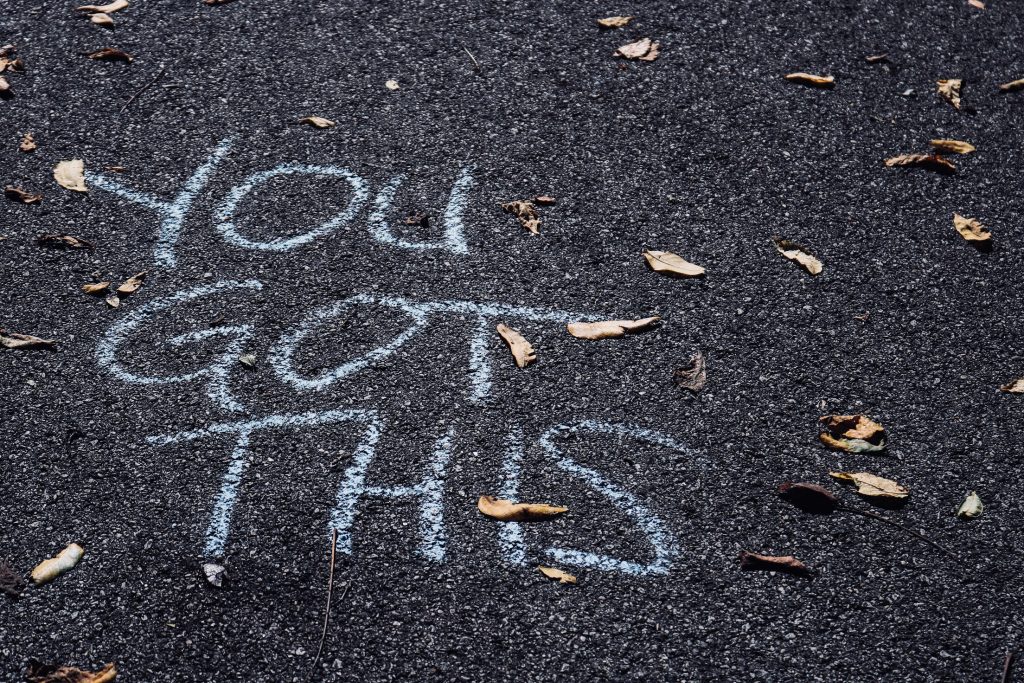
It’s been said that the three major things to hinder career change are time, money and confidence.
Today I’m going to focus on confidence. A big one.
My story
Prior to my own career change, my confidence levels were not high.
I’d lost confidence in my abilities at work. I would see other people in the office on the phone, or in client meetings, chatting so confidently and seemingly at ease. Whilst I was a bundle of nerves.
It affected my mindset. I didn’t enjoy the work, I was intimidated by it, and I had no real desire to do it. There was this mixture of apathy and fear. Not a good combination.
So as much as I wanted to make a change and find work that really spoke to me, I couldn’t see clearly what I had to offer. I’d been at that job for so long that it was hard to recognise my abilities out of that context.
As I associated my abilities with that specific role, I didn’t really want to think about them. Sales, negotiating – I’d had enough and it was like I’d hit a brick wall.
But I spoke to a coach who helped me to see things objectively, not an easy task when you are feeling so emotional. However she helped me distinguish between whether or not I enjoyed using those skills in that context, and whether or not I was actually in possession of those skills and could apply them elsewhere.
Tip 1 – rethink what you’re good at
If you’re struggling with your confidence, I’d recommend doing this with a coach, a good friend or someone in your family. Sit together and come up with a list of all the skills you use in your work. Do you have to communicate clearly, negotiate, give presentations, write concisely?
Also add a list of the things you feel you are good at, whether in or out of work. Are you super organised, brilliant at coming up with ideas, able to connect with other people easily?
Then objectively, together, evaluate these skills. Score yourself out of 10. Particularly pinpoint those you don’t feel confident about, or that you’re sick of. Take out the emotion. As much as you may not enjoy it – you probably actually use this skill really effectively, and have a huge amount of experience in using it. Try to back your score up with examples. Maybe imagine how you’d view the situation if it were a colleague in your place.
You might surprise yourself.
The main aim here is to realise that you have many skills and talents that can be put to excellent use elsewhere.
Tip 2 – read about inspiring people
Prior to, during, and after my career change, I also read a lot of books that I picked directly to help me with my confidence levels, such as Feel The Fear And Do It Anyway. Over time, these books reinforced the message that I could do whatever it was that I wanted. I just had to get started.
I read so many books and articles from impressive women who had done brilliant things. They said that the only difference between them and anyone else was that they chose to go ahead and get on with things. These women weren’t necessarily more talented, creative or intelligent. They all had the distinguishing feature of just getting their heads down and step-by-step working towards accomplishing what they wanted.
Find inspiration
I found articles and blogposts about other women who had gone through a career change. There were stories similar to my own. Seeing that these women had moved on and were now doing work that they enjoyed or even loved, inspired me.
Gradually it helped change my mindset. I realised that I do have loads to offer, and actually more opportunities than most; I was just getting in the way of moving myself on, by giving in to fear.
Bit by bit I developed a more positive, brave, explorative mindset. I learned about putting yourself out of your comfort zone, how it can be excruciating but the more you do it, the more you develop resilience. So often I felt uncomfortable, unsure and awkward. I accepted that part of the process to moving on is to feel this way.
Bonus – read these books
Here are some of the books that helped with developing confidence and made me excited to find my own path. Maybe they will inspire you too:
- Girlboss by Sophia Amoruso
- You’re a Badass by Jen Sincero
- The 4-Hour Workweek by Tim Ferriss
- Feel the Fear and Do It Anyway by Susan Jeffers
- Be Your Own Life Coach by Fiona Harrold
- Lucky Bitch by Denise Duffield-Thomas
- Are We There Yet? by Sarah Alderson
- This Year Will Be Different – Monika Kanokova
I hope you find these tips useful if you’re letting confidence hold you back. You can build it back up.
If you’d like to try a coaching session with me, working on building your confidence, send me an email at: joaopoku@gmail.com.
Photo by sydney Rae on Unsplash




